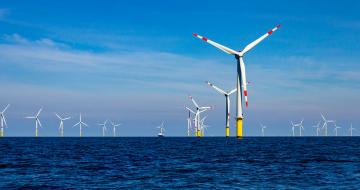Table of Contents
This call for projects is closed. You can no longer participate in this call for projects.
Objectives and Themes of the Call for Projects
The objective of the BBBC calls is to accelerate the transition towards a circular economy in Belgium. They are part of the National Recovery and Resilience Plan (PNRR) and are supported by a temporary European fund, Next Generation EU. The PNRR Is part of Europe’s endeavor to revive the economy and assists societies in European states heavily affected by Covid-19, while taking into account the objectives of the Green Deal.
This second BBBC call focuses on two aspects of the circular economy: chemical substitution and ecodesign.
Chemical Substitution
In a broad scope, the substitution of the most harmful substances is being considered, and includes projects focused on introducing to the market alternative chemicals, technologies and/or products that eliminate the use of the most harmful substances or the presence of the most harmful substances in a product.
For the substitution call, we are looking for solutions that tackle the main obstacles in the system, in particular by preventing “regrettable substitution”, which involves merely replacing one harmful chemical with another. In particular, projects involving various stakeholders in the supply chain are targeted to ensure sufficient knowledge and transparency regarding the origin of proposed alternatives and potential risks throughout the life cycle.
For this call for projects, three groups of priority substances for substitution in Belgium have been identified.
PFAS (perfluoroalkyl and polyfluoroalkyl substances)
PFAS are used in a multitude of applications in sectors such as:
- aerospace
- automotive
- food contact materials and food processing
- textiles, leather and accessories
- construction and household products
- electronics
- firefighting
- medical supplies
Recognizing the need to eliminate PFAS, the Federal Government is issuing a call to support projects that focus on developing safe and sustainable alternatives to PFAS. Given the problematic nature of all PFAS, as well as their many applications across numerous sectors, no specific priority areas are defined under this theme
Endocrine Disruptors
Endocrine disruptors (EDs) represent a major public health issue. These chemicals are wildy distributed in the environment (water, soil, air) and daily consumer products (food, toys, building materials, cosmetics, textiles, electronic devices, etc.)
The establishment of risk management measures at European level is still expected to take many years according to the European Commission's timetable. The implementation of additional measures at the national level is therefore essential.
Priority Substances for Belgium
In addition to these two groups of substances, there is also a list of substances which will be prioritized because they have been shown to be very important for industry and/or relevant for the general public.
These substances are the following:
|
CAS-number |
EC-number |
Name |
|---|---|---|
|
123-77-3 |
204-650-8 |
Diazene-1,2-dicarboxamide (C,C'-azodi(formamide)) (ADCA) |
|
121158-58-5 |
310-154-3 |
Phenol, dodecyl-, branched |
|
85535-85-9 |
287-477-0 |
Alkanes, C14-17, chloro |
|
540-97-6 |
208-762-8 |
Dodecamethylcyclohexasiloxane |
|
75-56-9 |
200-879-2 |
Methyloxirane (Propylene oxide) |
|
127-19-5 |
204-826-4 |
N,N-dimethylacetamide |
|
109-86-4 |
203-713-7 |
2-methoxyethanol |
|
10043-35-3 |
233-139-2 |
Boric acid |
|
- |
701-028-2 |
tris(4-nonylphenyl, branched) phosphite |
|
98-54-4 |
202-679-0 |
4-tert-butylphenol |
|
61788-32-7 |
262-967-7 |
Terphenyl, hydrogenated |
|
84-61-7 |
201-545-9 |
Dicyclohexyl phthalate |
Ecodesign
The second aspect of this call for projects concerns projects centered around ecodesign, which aim to reduce the environmental and health impact of products and materials over their lifespan.
This sphere includes 4 priority themes:
- professional electronic equipment and devices
- clothing
- reduced packaging in the distribution and logistics in the food chain
- interior design and exterior furniture
More information on these 4 topics: FPS Public Health website.
Who could Submit a Project?
This call is for:
- Belgian organizations or consortia (or active on Belgian territory) namely companies, with particular attention to SMEs
- start-ups
- research centers, with an emphasis on applied research institutions
- NGOs
- consulting firms and similar institutions
What was the Budget Allocated to the Call for Projects?
The total budget allocated to the “Substitution” part of this call is 11.8 million euros.
The funding granted for the entire call for projects amounts to:
- For chemical substance substitution projects, the granted amount ranges between 250,000 and 2,000,000 euros per project
- For ecodesign projects, the granted amount ranges between 100,000 and 1,000,000 euros
Contact
- For projects regarding substitution, send your questions by email to BBBCsubstitution@economie.fgov.be
- For projects regarding ecodesign, send your questions by email to BBBC@health.fgov.be. You will find more information on this topic on the FPS Public Health website.


